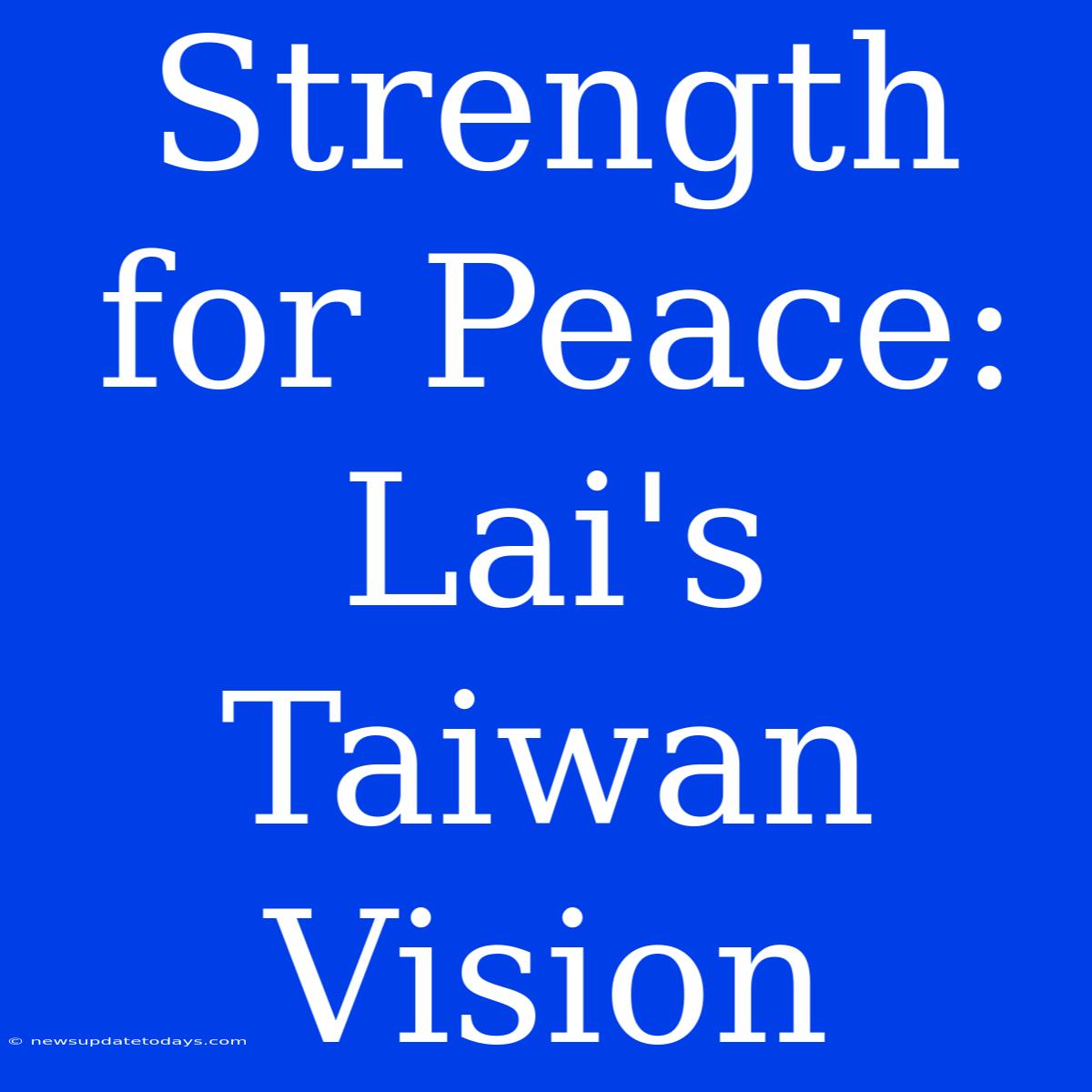Strength for Peace: Lai Ching-te's Taiwan Vision – A Deep Dive
Taiwan's 2024 presidential election is shaping up to be a pivotal moment for the island nation, and a key figure in this crucial election is Lai Ching-te, the current Vice President and Democratic Progressive Party (DPP) candidate. His vision, centered on the concept of "Strength for Peace," offers a compelling, albeit controversial, pathway for Taiwan's future. This article delves into the core tenets of Lai's policy, exploring its implications for cross-strait relations and Taiwan's place in the international community.
Understanding "Strength for Peace"
At its heart, Lai's "Strength for Peace" strategy rests on the principle that Taiwan's security and autonomy are inextricably linked to its ability to defend itself. This isn't merely a military buildup; it's a multifaceted approach encompassing:
-
Military Modernization: Lai advocates for a significant strengthening of Taiwan's armed forces, including investment in advanced weaponry and enhanced training. This is intended not as a provocation, but as a deterrent against potential aggression from China.
-
Economic Resilience: A robust and diversified economy is crucial to Taiwan's independence and ability to withstand pressure. Lai emphasizes strengthening domestic industries, fostering innovation, and deepening economic ties with like-minded democracies.
-
Diplomatic Engagement: While maintaining the status quo on official diplomatic recognition, Lai seeks to broaden Taiwan's participation in international organizations and foster closer relationships with key allies. This includes strengthening ties with the United States and other democratic nations.
-
National Identity: Lai stresses the importance of a strong sense of Taiwanese identity and national unity, seeing this as crucial for weathering potential external challenges.
Navigating the Complexities of Cross-Strait Relations
Lai's approach to China is arguably the most complex aspect of his vision. While he consistently affirms his commitment to maintaining peace and avoiding conflict, he firmly rejects the "1992 Consensus," a framework interpreted by Beijing as acknowledging Taiwan as part of China. This stance has led to concerns from Beijing, which views any deviation from the "one China" principle as a significant threat.
This rejection, however, doesn't imply a desire for confrontation. Lai's "Strength for Peace" strategy aims to deter aggression by demonstrating Taiwan's resolve and capability to defend itself. He believes that a strong and confident Taiwan is less likely to be targeted.
International Implications and Alliances
Lai's vision necessitates strengthening Taiwan's international partnerships. This involves leveraging its economic strength, technological prowess, and democratic values to forge deeper relationships with countries sharing similar ideals. The potential for increased cooperation with the US and other democracies is a significant aspect of this strategy. This will require careful diplomatic maneuvering to balance Taiwan's security needs with the sensitivities of major powers.
Challenges and Criticisms
Lai's vision faces several challenges. The primary concern is the potential for escalating tensions with China. Beijing's response to Lai's election could range from economic pressure to more forceful actions. Furthermore, the financial costs of military modernization are substantial and will require careful economic planning and resource allocation.
Critics also argue that a solely defense-oriented approach may not be sufficient for long-term peace. They advocate for a more conciliatory approach towards China, emphasizing dialogue and compromise.
Conclusion: A Risky but Necessary Gamble?
Lai Ching-te's "Strength for Peace" represents a bold strategy for Taiwan's future. It is a calculated risk, acknowledging the potential for increased tension with China while prioritizing Taiwan's security and autonomy. The success of this vision will depend on a delicate balance of military preparedness, economic resilience, and skillful diplomacy. The upcoming election will determine whether Taiwan chooses this path, and the world will be watching closely.

